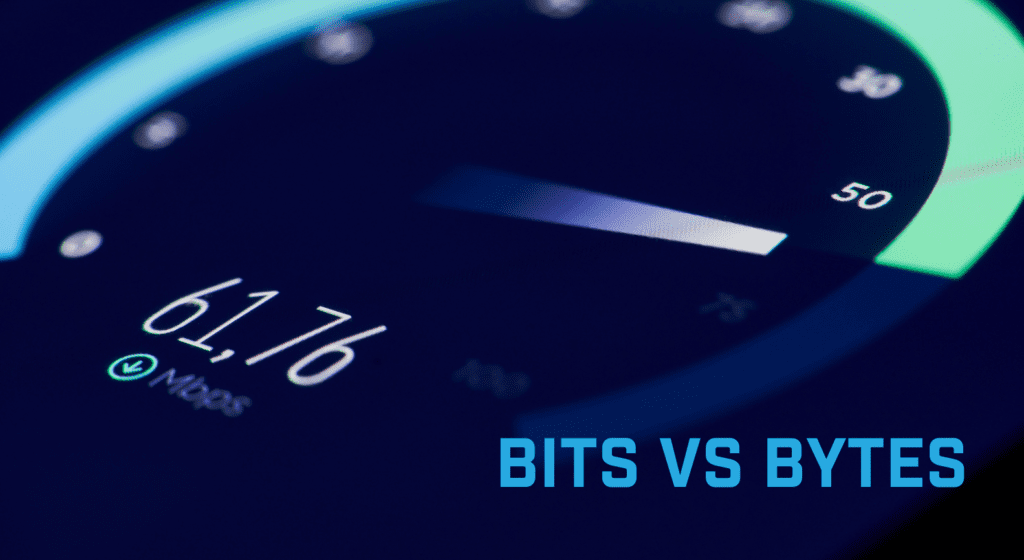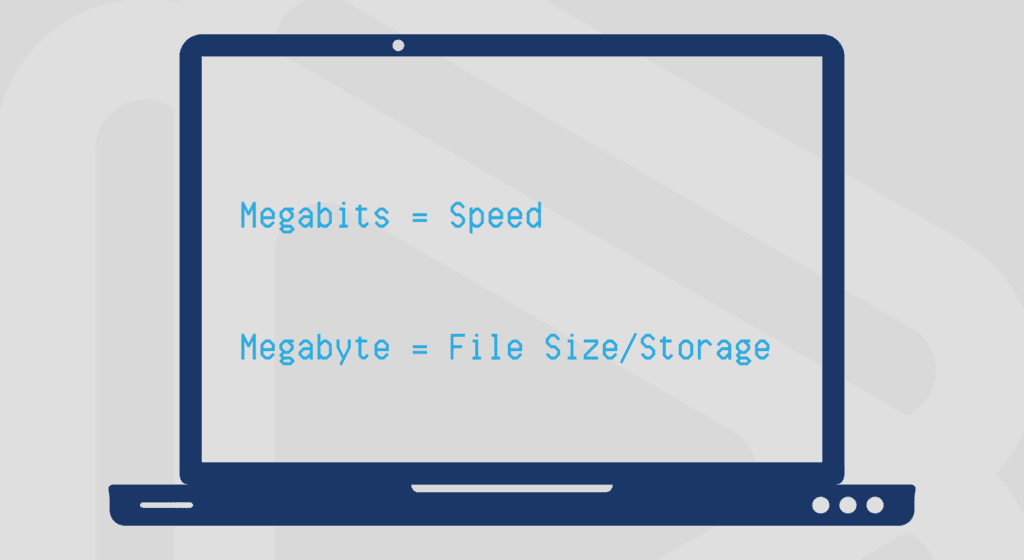
It all comes down to speed versus storage size when you see megabits and megabytes listed on internet packages.
Megabits and megabytes are units of measurement for digital information. Megabits measure data transfer speeds or bandwidth, while megabytes measure the size of a file or the amount of data that can be stored.
One megabit is equal to 1,000,000 bits, and one megabyte is equal to 1,000,000 bytes. There are 8 bits in a byte, so there are 8 megabits in a megabyte. This means that 1 megabyte is equal to 8 megabits.
How does this work for my internet connection?
For example, if you have a high-speed internet connection with a bandwidth of 20 megabits per second (Mbps), it means that you can download or upload data at a rate of 20 million bits per second. If you want to download a file that is 100 megabytes in size, it will take approximately 800 seconds (or 13.3 minutes) to download the file at a rate of 20 megabits per second.

Learn how to test your internet speed here which will give you a measurement of megabits per second. We recommend you test your internet speed using the page on our website or at speedtest.net. These are the two different internet speed test sites we use regularly to provide accurate data.
And if you check out our rural high speed internet packages, you will see that some have a traffic limit, which is the amount of data you are allowed to use within a month, or megabytes. Just because unlimited megabyte packages are offered, doesn’t mean you necessarily need one. You can learn more here.
It’s important to note that megabits and megabytes are often used interchangeably, but they represent different units of measurement. Make sure you know which unit is being used when you’re discussing data speeds or storage sizes.




